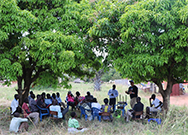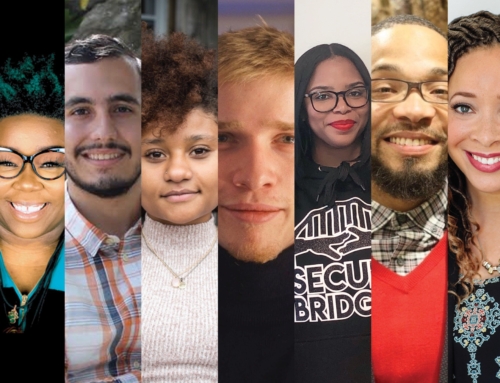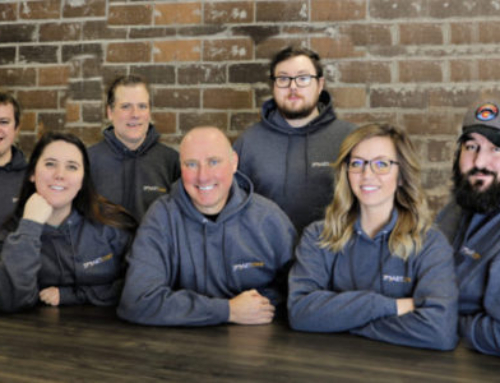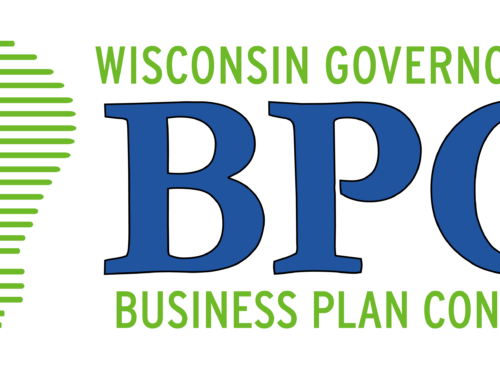
Agricycle works with rural farmers cooperatives in Africa and the Caribbean to generate revenue from fruit that would otherwise go to waste.
Anyone who’s attended a charity fundraiser knows it takes money to do good. And anyone who’s bought a box of Thin Mints knows that social entrepreneurship is nothing new. But many Wisconsin companies are part of a growing global movement working to redefine what it means to be a successful business and broaden the definition to include social responsibility.
That movement is making an impact. Earlier this year, the Business Roundtable reversed its stand on the principle of shareholder primacy it has held since 1997, revising its Principles of Governance to state that businesses must work for the benefit of all stakeholders—customers, employees, suppliers, communities and shareholders.
Wisconsin benefit corporations
Two years ago, Wisconsin’s Act 77 was signed into law, making Wisconsin the 34th state to officially recognize a new category of business: the benefit corporation, or “B Corp.” As a hybrid of for-profit and nonprofit business models, state benefit corporations aren’t just beholden to their shareholders.
Unlike voluntary corporate social responsibility efforts, the B Corp model moves social responsibility closer to the core of the business model by making it a legal requirement. Whether that’s protecting the environment, supporting the local community or some other factor its directors deem important, these business entities are legally required to provide some type of public benefit. Incorporating as a B Corp ensures a company’s social mission will stay central even if leadership changes and provides more flexibility when evaluating potential sale and liquidity options.
One of the first companies to register as a Wisconsin benefit corporation was Blue Mangoes, now Agricycle Global. Agricycle’s business model is two-pronged: it manufactures and sells solar-powered drying machines to farmers’ cooperatives in Africa and the Caribbean, then markets the products those partner cooperatives produce, including dried fruit, fruit flours and sustainable coconut charcoal. Farmers are able to make use of the overabundance of tropical fruit that normally goes to waste in saturated local markets, and customers in North America and Europe have access to sustainable products traceable from tree to shelf.
Josh Schefner, Agricycle’s CEO, started the company just a few weeks after arriving as a student at the Milwaukee School of Engineering. He and his business partners have been through “pretty much every accelerator and incubator in Wisconsin,” as he puts it, including WERCBench Labs, FaBCAP, StartingBlock, Madworks and gBeta, in addition to the Target Incubator and the National Science Foundation’s Innovation Corps.
Despite the global focus of its business model, Agricycle plans to keep its roots firmly in Wisconsin. “We basically built the company with the support and mentorship of the Wisconsin community. We know there are good resources and networks here,” Schefner says.
He says that some investors have been hesitant to put money into a venture that isn’t 100% focused on maximizing profit, but many others have bought in, seeing this as the future of business: “Being a B Corp legally signaled to consumers that we put our values first. It signaled to investors that we’re not a normal company, and that they have to be on board.”
B Lab Certified B Corporations
Pewaukee’s Box Latch Products, which makes reusable closures that extend the usable life of cardboard boxes, was founded on much the same ethos.
“B Corp values matched our personal and business values like a hand in glove. [It] was a way of setting our business apart from the average business,” says Jack Wilson, who cofounded Box Latch Products with his brother Jim.
Although not incorporated as a Wisconsin benefit corporation, Box Latch has been certified by the Philadelphia nonprofit B Lab under its B Corps program since 2016. “Certified B Corps” share many of the same standards and legal structures as state benefit corporations. The certification is available to companies worldwide, whether or not there is a state benefit corporation option available to them.
Box Latch Products is one of a dozen Wisconsin companies across a range of industries are B Lab certified. Others include the Milwaukee-based investment advisory firm Riverwater Partners, which specializes in socially responsible investing; Madison’s Tribe 9 Foods, a producer of nut butters, fresh pasta and grain-free snacks; and tribal health care consultancy Indigenous Pact, based in Oneida. In addition to a lengthy application process, companies require periodic recertification to keep their “Certified B Corp” status.
Wisconsin’s benefit corporations and Certified B Corps are working with other Wisconsin nonprofits and sustainability-focused companies under the B Local Wisconsin umbrella to further the principles of business as a force for good.
They’re not alone. The Wisconsin Sustainable Business Council is helping established Wisconsin businesses become better fiscal, environmental and social stewards. In 2018, 140 businesses participated in the council’s Green Masters Program as a way to assess and improve their sustainability initiatives. And in Madison, startup hub StartingBlock’s Slingshot Social Impact Initiative is providing support for new social entrepreneurs exploring business-driven approaches to social and environmental challenges like healthy youth development and equity gaps.








FOLLOW US